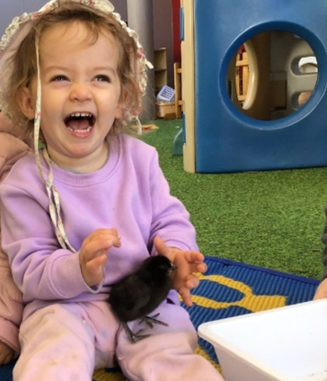
Research shows that children with high emotional intelligence are able to connect better with other children and adults, make more informed choices, self-regulate their emotions and have the ability to stay calm when life gets complicated. Children who have high emotional intelligence often are happier, make friends easily, are physically more active and can achieve better results in all areas of their school life. Children begin to develop their emotional intelligence as babies by learning how other people respond to their emotions.
Families can help their children by taking on the role as an emotions coach. Being an emotions coach will not only help to develop your child’s emotional intelligence but will also strengthen your connection with your child and help you both grow in all areas of life.
There are the five key elements to emotional intelligence, they are all connected with one another:
Below are five simple steps to grow and connect together with your child in emotional intelligence.
Step 1) Be self-aware of your emotions and your child’s emotions. Families can support their child’s self-awareness by valuing their negative and positive emotions and by being patient when your child expresses themselves. Use these emotions as an opportunity to discuss and reflect on your own emotions and your child’s emotions.
Step 2) Emotions are an opportunity to teach self-regulation. A child’s big emotion is a loud cry for help. Children need to feel supported when problem solving situations, they find difficult or situations they haven’t experienced before. By supporting your child in their problem, little or big, we can help them to reduce their time in distress and give them strategies to problem solve in different scenarios. Each time they overcome a big emotion, they will be better equipped with tools and strategies to self-regulate their emotions for the next time life can get tricky or complicated.
Step 3) Teach Empathy for others. When the situations arise, help your child label the emotion they see on the other persons/child’s face. Ask your child to truly listen to the other person and observe how they are feeling. Share your own emotional experiences with your child and how you overcame them, who may have helped you and how you have grown from that experience. Have different people speak to them about different perspectives. Read and listen to a variety of stories, songs, films and TV shows which will show your child different perspectives from people who are in different situations. Children are born to naturally feel empathy; an emotions coach will help your child to nourish and to further develop their emotional intelligence.
Step 4) Let your child encounter social challenges, disappointment and failure. Children will be more confident in dealing with conflict, the more they encounter it. Still coach your child but also let them practice on their own. Practicing these concepts as a child are opportunities for learning, consolidating strategies and have lower stakes then as an adult. These will help when conflicts arise in their adult life, as they will have accumulated a toolbox of strategies to manage conflict.
Step 5) Prepare your child emotionally. If there are going to be changes to your child’s routine that you are aware of, let them know before they’re going to occur. Prepare your child by explaining what will happen, who it’ll involve and ask them how they may feel and offer solutions if they feel like that. After the change in event has occurred, check in with your child, share with them how proud you were that they were able to get through the change and manage their emotions. This will give your child a sense of achievement and accomplishment, which will make them more confident for the next change.
If you have concerns about your child’s emotional intelligence, set some goals with your child’s teacher and have regular check ins with each other to discuss the progress and strategies. By following the above steps, not only will your child’s emotional intelligence develop, but you’ll find you will have improved your own emotional intelligence. You’ll also have a strong connection and relationship with your child which will continue to grow and evolve for years to come.